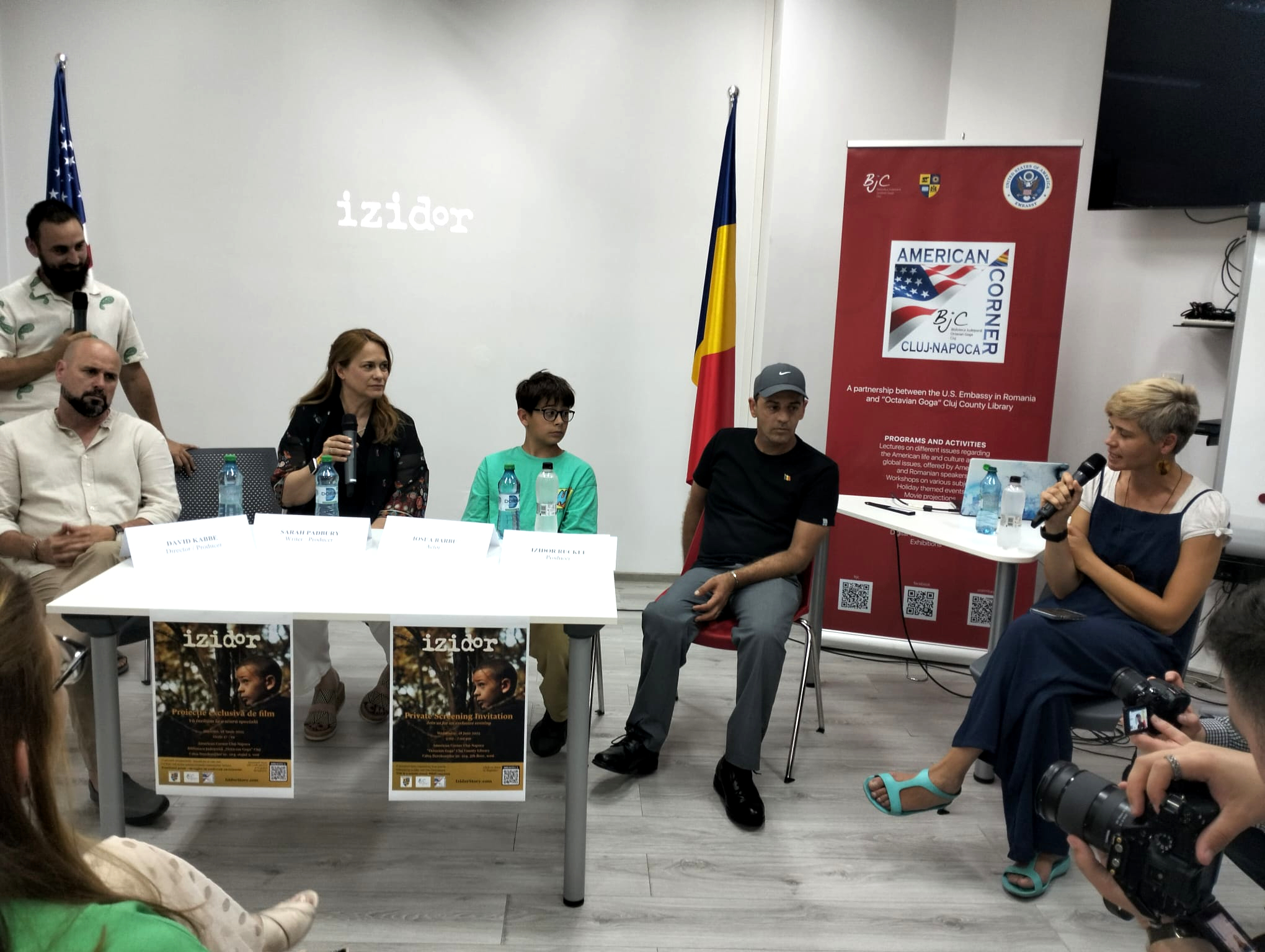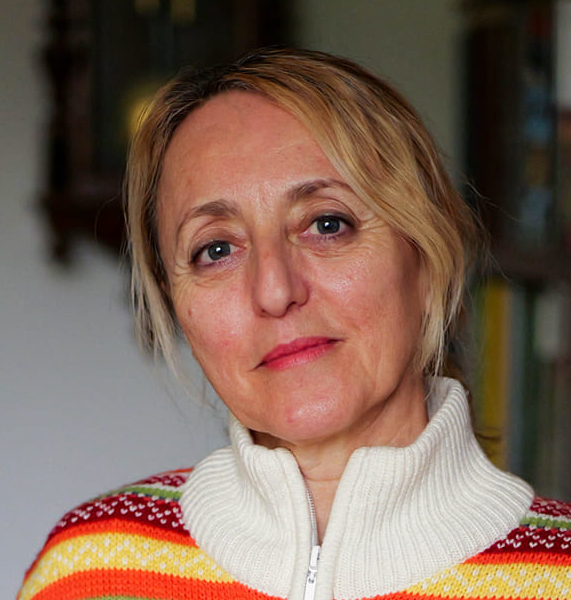“Can you imagine being beaten for the simplest things you did? Can you imagine watching your friends die of hunger? Or knowing someone who simply gave up on life because it was too cruel? That was life for me in a Romanian institution during the first 11 years of my life. But just when I thought my life was worthless, a kind caregiver took me home for one night. I experienced the love of a family for the first time in my life. From that moment on, all I could think about was how to escape and find where I truly belong.” This is how Izidor Ruckel begins to tell his life story, captured in a film, published in a book, and featured in a documentary by Morgan Freeman.
Izidor is 40 years old as a film about his life is screened in a library in Transylvania. The room is filled with parents and children, despite being warned of the film’s strong emotional impact. They did not turn away. Izidor and the team behind the film are present, and all eyes are on them. His story is not just his own—it represents the stories of millions of children growing up in orphanages around the world, approximately 8 million globally.
What makes Izidor’s life story particularly remarkable is that he was born during communist Romania and with a disability. The dictatorial regime encouraged high birth rates, but families unable to support their children sent them to orphanages. Those with disabilities were sent to special institutions for the “incurable.” Izidor suffered from polio, which severely affected his right leg. He grew up in one such “orphanage of horror” in Sighetu Marmației until he was adopted at age 11 by a family in the United States.

Learning What Love Is
In his early years, he had seen nothing beyond the orphanage courtyard. He had never been on the street, seen a lived-in house, or known what a family was. Until one day, Onisa, a brave caregiver at the orphanage, asked for permission to take Izidor to her home for a one-night visit. He was eight years old.
One afternoon, Izidor stepped out of the orphanage hand-in-hand with Onisa and discovered, overwhelmed, a small town where life felt normal. He rode in the family cart, played in the forest and meadow with children, picked an apple, prayed with the family before dinner, ate stuffed cabbage rolls and cake, laughed at the father’s jokes, and fell asleep in a warm bed. The next day, he cried when returning to the orphanage, struggling to be brought back into its squalid halls.
Despite the immediate pain, that visit would change his life. After discovering the joy of belonging, he dreamed of having that for himself. He now knew what he could hope for. “The idea of the film is that when you belong to something, that’s when you truly live,” says Sarah Padbury, the screenwriter inspired by Izidor’s real-life story.
A key goal of the film about his childhood in a communist Romanian asylum was to pay tribute to Onisa’s courageous, risky kindness—taking him home despite it being forbidden. “It was the first time it happened at that orphanage, and afterward, other caregivers began taking children home. She broke the ice and helped not just me, but other children too,” says Izidor.
After 2015, Izidor returned to Romania, visited Sighetu Marmației and several orphanages. He was saddened to learn Onisa had passed away from cancer. He reunited with her family and searched for fellow sufferers.
Today, he fights for better lives for institutionalized children around the world. His messages—through books, interviews, and films—aim to awaken understanding and empathy and inspire disadvantaged children to hope for a normal life.
Regarding Romanian institutions for orphaned children he has visited in recent years, Izidor says conditions have improved. “I’ve visited several homes over the years when I returned to the country. I noticed things have improved—many changes, and conditions are better. But when I saw the children and their rooms, I remembered myself and how sad I was. I believe adoption is a solution. Many Romanians want to adopt, and there are organizations working on this, which is very good,” he told EurActiv.
The 30-minute film by director David Kabbe and co-producer/screenwriter Sarah Padbury serves both educational and historical purposes, aiming to promote awareness and preserve memory. “We want the film to reach schools, universities, and civic organizations as a tool for awareness and knowledge. We’re open to partnerships in both Romania and the U.S.,” says Sarah.
Izidor Ruckel wrote the book Abandoned for Life, detailing life in a Romanian orphanage and his adoption by an American family. He also wrote the screenplay for the documentary Given Our Chance (2013). For the past 20 years, Izidor has been an advocate for orphans, speaking on behalf of vulnerable children in both the United States and Romania.
Izidor Ruckel’s case was presented by Morgan Freeman in the documentary The Story of Us (2017), created for National Geographic.
Information about the documentary can be found at:
